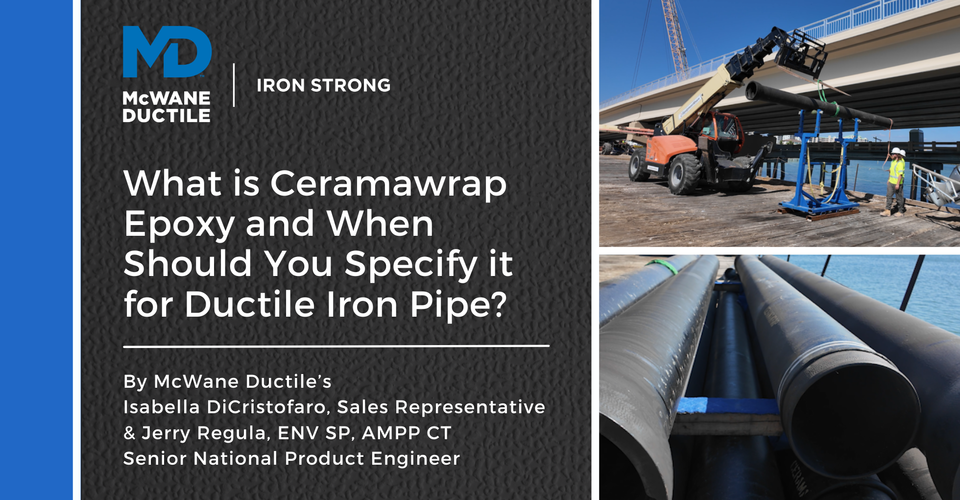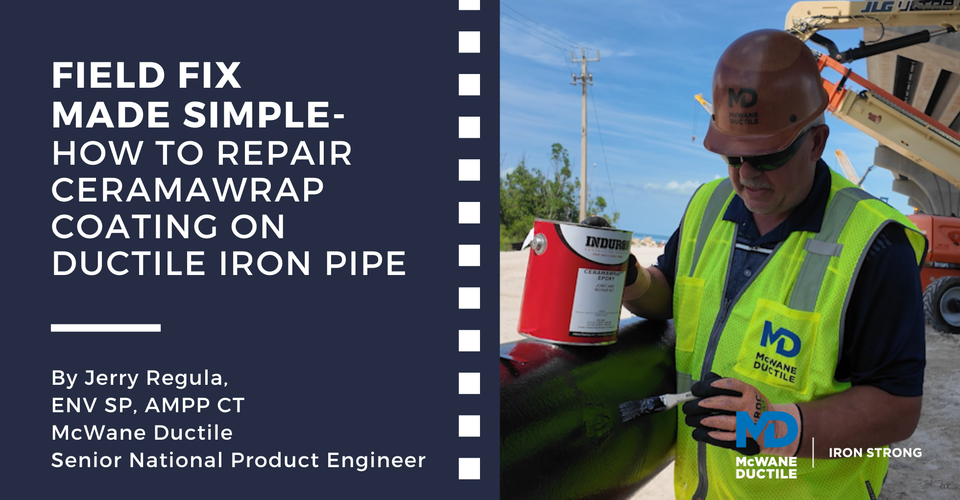Your search has yielded no results… Please try again.
Refine your search and make sure your keywords are spelled correctly. If you need assistance, please feel free to contact us.
Latest Posts
- The Future Is Now: How the Water Industry Is Revolutionizing 01/29/2026 In Products Technical Technology Training
- What is Ceramawrap Epoxy and When Should You Specify It for Ductile Iron Pipe? 01/28/2026 In Products Technical
- How to Repair Ceramawrap Coating on Ductile Iron Pipe in the Field 01/28/2026 In How To Products Technical
- Developing an Asset Management Plan for Your Future Utility or Engineering Organization 12/04/2025 In Comparisons Industry





